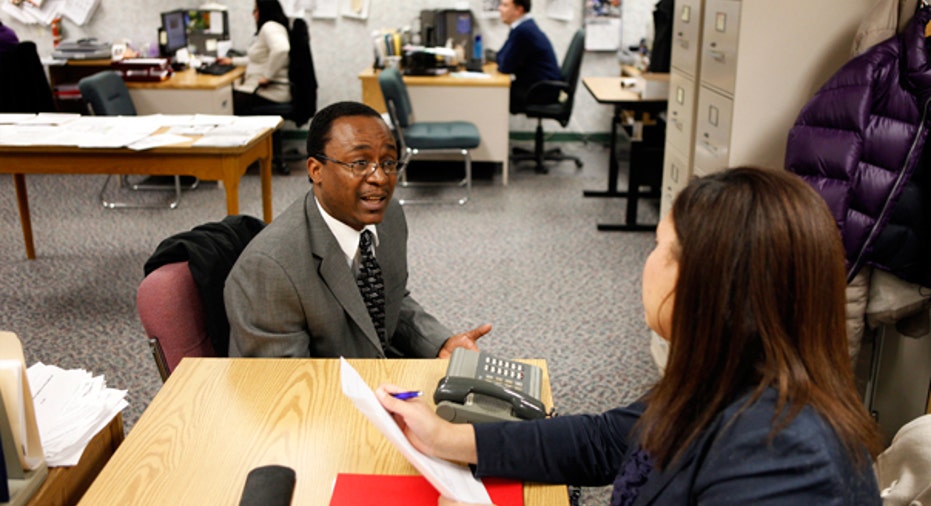4 Interview Mistakes Grads Should Avoid

After working hard on perfecting their resumes to display their desirable skill set and experience to potential employers, grads granted an interview are sure to be thrilled—but now comes the hard part: the interview.
An interview shows potential employers a candidate’s personality, work ethic, experience and whether he or she would be a good fit with the company—and research shows recent grads aren’t making a good first impression.
According to a 2012 study conducted by York College of Pennsylvania concerning professionalism in the workplace, 29% of college grads show up late for job interviews, 40% don’t dress appropriately and nearly 1 in 4 show poor verbal skills including grammatical gaffs. (http://www.ycp.edu/media/yorkwebsite/cpe/2012-Professionalism-in-the-Workplace-Study.pdf)
Although managers base some of the hiring decision on how a candidate’s resume, cover letter and work samples highlight their qualifications, grads can seal their fate by how they present their skills in person, says Kimberly Baker, career services manager at Bryant & Stratton College Online (http://online.bryantstratton.edu/)
“In a competitive job market, it is critical that job candidates make an impression that sets them apart from the scores of other applicants that are also interviewing for the same position,” she says.
“Being fully prepared means not only dressing the part in professional attire, but being able to speak thoughtfully about how your background directly applies to the position and offer specific examples of how you'll be able to contribute meaningfully to the organization.”
To increase their chances of landing the position, here’s what experts say are the top four mistakes grads make in the interview process and how to avoid them.
Mistake No. 1: Not Knowing What They’re Talking About
Grads often enter interviews without researching both the background of the company and current employees, according to Paul Harty, president of Seven Step RPO. (http://www.sevensteprpo.com/)
“Do you know where the person you are interviewing with went to college? Where they worked prior? What about the president or CEO?” he says.
Staying current on company news and events in the industry can also demonstrate a candidate’s enthusiasm for the position, says to Kevin Murray, director of talent acquisition at Wayfair.com. (http://www.wayfair.com/)
“Employers want to see that a candidate is genuinely interested in, and hopefully even passionate about, the industry, their business, and the role.”
Mistake No. 2: Inappropriate Attire/Conduct
While most grads should have enough sense not to show up in jeans and flip flops for an interview, they should err on the side of caution and stay more conservative with their outfit.
“We need assurances that you care about your appearance, that we can trust you to wear appropriate attire to a client meeting,” says Todd Defren, CEO of SHIFT Communications. (www.shiftcomm.com)
Besides a sloppy appearance, a ringing or buzzing cell phone is also disrespectful towards both the organization and the hiring manager taking time out for the interview, cautions Baker.
“Cell phones can be a big distraction, so it is best to leave them in the car or at least turned off--that way you aren't tempted to play Words with Friends while you wait, or call your friends or family to rant or rave following the interview until you're safely outside of earshot or eyesight of the company.”
Mistake No. 3: Forgetting the Interview Starts in the Parking Lot
Grads never know who they will encounter before entering the interviewer’s office and what role others may have in the decision-making process, so they should show respect and professionalism to every person they meet.
Some hiring managers consult with the receptionist for feedback on applicants’ behavior while they’re waiting and illicit feedback from the entire office on any interactions, so always be on alert, recommends Baker.
“A good rule of thumb is to be polite, professional and courteous to absolutely everyone you encounter,” she says. “That person in the parking lot or elevator might be the CEO, and it's best to behave as though anyone you meet is involved in the hiring process, because it is possible they are.”
Mistake No. 4: Not Being Prepared to Answer/Ask Questions
At the very least, job seekers should always be prepared to answer the question, "why should I hire you?" or "why are you the best person for the job?" says Baker.
“That's a softball question you should anticipate and be ready to knock out of the park,” she says. “If you can't even offer a confident response to why you're a good fit, then the interviewer won't think you're a serious candidate.”
Going through practice interview questions with a friend or family member can help grads hone communication skills and their ability to be articulate on their feet, recommends Amy Payne, Talent Acquisition Specialist at SilkRoad.
“Show the employer you have a plan for your career, even if it is short term” she says. “‘I don’t know’ isn’t a good answer…even if is true. Most employers want to hire people who have thought through what their short-term professional goals are, even if the long-term remains a mystery. ”



















